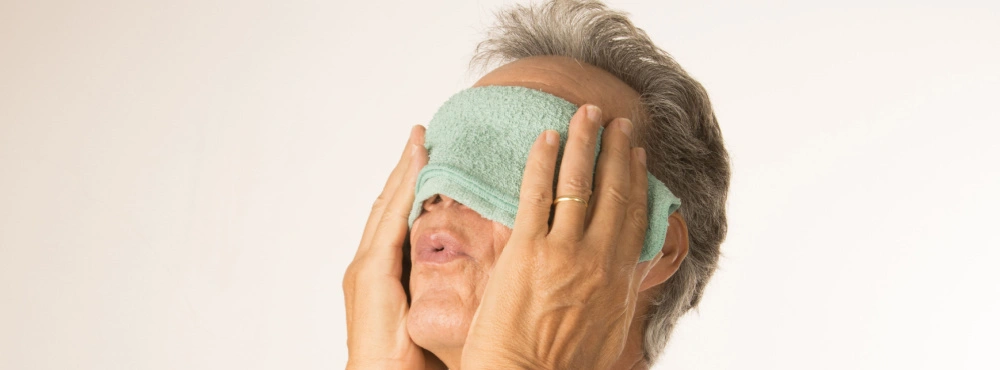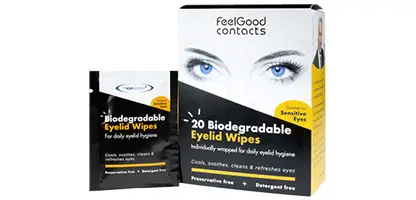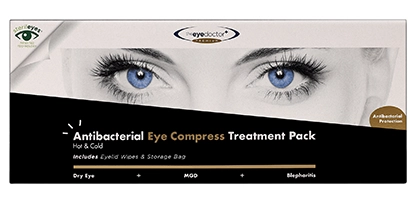Eye discharge, also known as eye mucus, boogers, eye gunk or rheum, is a build-up of oil, mucus, skin cells or debris that collects in the corner of the eyes while you are asleep. In this article, we will learn more about discharge from the eyes, its causes, how to get rid of it and some commonly followed home remedies to prevent it.
What is eye discharge?
Eye discharge, or "sleep" in your eyes, is a combination of foreign particles consisting of oil, mucus and debris, that gather in the eye corners. The eye mucus can be either wet and sticky or dry and crusty. It may even appear in different colours such as green, yellow, grey or stringy white. The variation of its form depends on the cause of the discharge.
Is eye discharge normal?
Some eye discharge is perfectly normal and even has benefits such as keeping the eyes moist and removing debris from the front surface of the eye. Your eyes continuously produce mucus throughout the day and constant blinking ensures the discharge is flushed out of your eyes before it can accumulate further.
Waking up with discharge in the eyes is usually normal. However, if your eyes are red with a sticky discharge and feel itchy, this could be a sign of an eye infection, such as conjunctivitis.
What causes eye discharge?
Your eye produces mucus throughout the day, but this gets removed as your eyes produce tears which coat your eyes when you blink. When we are sleeping, we are not blinking. The lack of blinking allows discharge to sometimes collect in the corners of your eyes or along the lash line.
Common causes of excessive eye discharge
Excessive amounts of eye discharge during the day or when you wake up could be a sign of an eye infection. Frequently seen eye conditions which cause excessive eye discharge include:
Conjunctivitis (Pink Eye)
Abnormal eye mucus is often associated with conjunctivitis. The kind of discharge can help your eye care practitioner diagnose the type of conjunctivitis and how to effectively manage the condition.
Allergic conjunctivitis, caused by allergens like pollen, dust, or side effects of contact lens solutions, eye drops or cosmetics can usually trigger discharge from the eyes. Bacterial conjunctivitis, also known as sticky eyes. This type of conjunctivitis creates a thick, yellow, sticky discharge. Viral conjunctivitis often associated with the common cold, produces a clear, watery eye discharge.
Dacryocystitis
This is caused by a blocked tear duct that leads to inflammation and infection of the tear sac. If symptoms persist, it causes sticky discharge and discomfort in your eyes.
Meibomian gland dysfunction (MGD)
MGD is a common cause of dry eye syndrome. In severe cases, these blocked oil glands can lead to a frothy tear film and crusting on the eyelids.
Eye styes
A stye is caused by an infected eyelash follicle that leads to swollen eyelids, eye discomfort, and abnormal discharge or yellow pus from the eyes.
Other conditions that can cause excessive discharge from the eyes include:
- Blepharitis
- Acanthamoeba Keratitis
- Dry eyes
How do you get rid of eye discharge?
Did you know most eye boogers are a sign of healthy eyes? Yes, you heard it right. The naturally produced eye discharge keeps your eyes free from the debris. However, if these boogers cause discomfort, your eyecare practitioner or GP may advise the following treatments:
- For mild cases, soak a cotton wool pad in cooled, boiled water and gently rub your eyes to soften the crust. Alternatively, you can also use our Eye Doctor Eyelid Wipes

 Offers
Offers Account
Account
 Favorite
Favorite
 Basket
Basket

 OFFERS
OFFERS


















